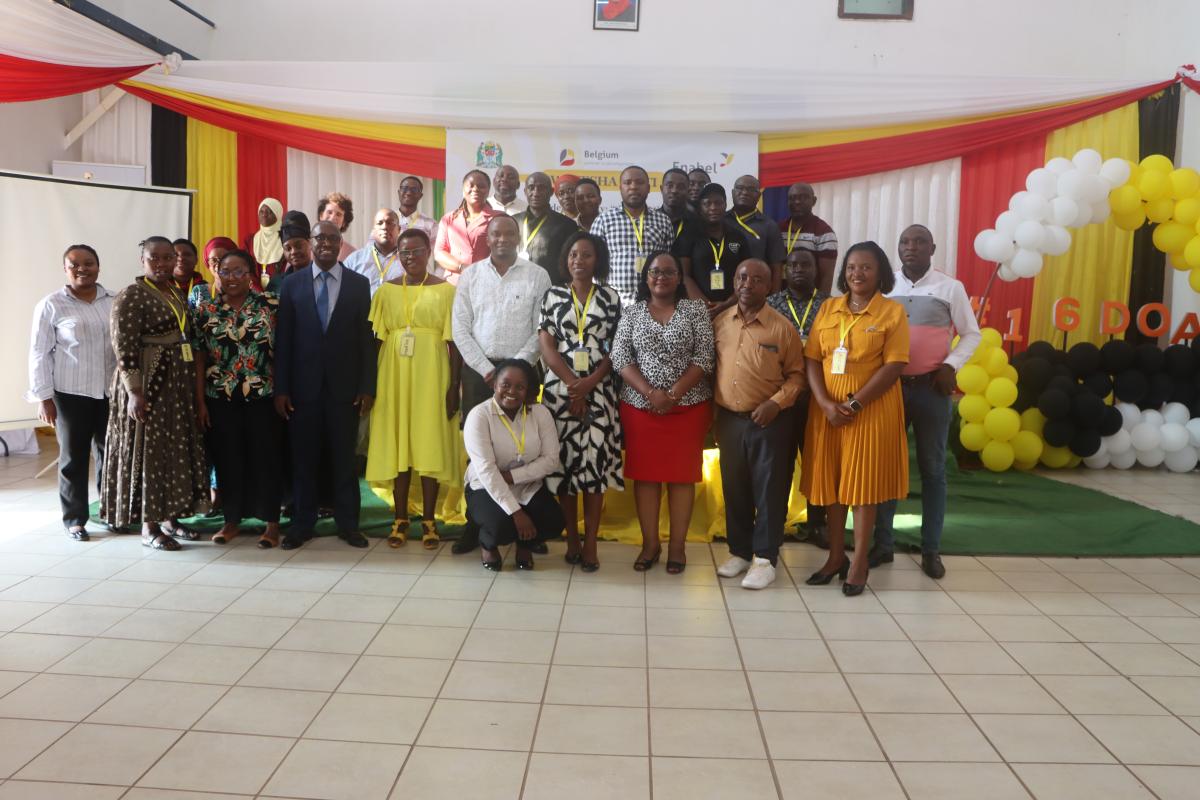Breaking barriers, Building Dreams: A policy dialogue to advance gender equality for young women and girls in Kigoma
A passionate call to dismantle
systemic barriers facing Tanzania’s women and girls dominated a landmark high
level policy dialogue held in Kigoma, bringing together over 50 government,
civil society and private leaders united to demand urgent action on education
and economic justice. Organized by Enabel’s Wezesha Binti (Empower a
Girl) project and titled “Advancing Gender Equality: Accelerating Secondary
Education and Improving Economic Opportunities for Young Women and Girls”
with one rallying cry of no more broken promises.
The participants were moved by an
emotional testimony from a 17-year-old young mother who defied stigma to
reclaim her education. “I want to be a doctor, but my community says I’m
‘spoiled.’ How can I prove them wrong if even teachers don’t know the re-entry rules?
she stated, detailing how unclear re-entry policies and teacher bias nearly
denied her a chance to continue with her education. Her story is anchored from
a presentation by Dr. Wilberforce Meena of Haki Elimu (Right to Education), a
leading NGO on education sector in Tanzania, on a study they conducted on
Tanzania’s 2021 re-entry policy, allowing teen mothers back to school.
While the law revived hope for many
teenage mothers when it was introduced in 2021, Dr. Meena revealed glaring gaps
that only 12% of schools in the country fully comply with stigma, untrained
staff, and inconsistent implementation locking young mothers out of school. “We need nationwide teacher
training, community anti-stigma campaigns, and clear guidelines to prevent
arbitrary implementation of the re-entry policy.”
On the discussion about economic
empowerment, the panelists highlighted economic exclusion of women in
high-growth sectors like renewable energy and construction despite Tanzania’s
push for “greener jobs” in climate-resilient sectors. Women entrepreneurs flagged persistent
challenges citing exclusion from male dominated industries, limited access to
financing as banks demand collateral, complex business registration processes
and punitive tax regimes that discourage formalization of their businesses. They
pushed for faster reforms—simplified business licensing, gender-responsive
financing, and tax incentives to formalize women-led enterprises.
The government through Vocational
Education and Training (VETA) centres is tasked with coming up with strategies
to attract young women and girls to join Technical and Vocational Education and
Training (TVET) programs by revising the curricula to align with job market
demands, offering scholarships, childcare support and mentorship led by women.
In his closing remarks, Mr.
Msafiri Nzunuri, Kigoma’s Regional Community Development Officer and Wezesha
Binti regional focal point, pledged collaboration with all stakeholders “We
cannot solve these issues in silos. From enforcing anti-GBV laws to supporting
women’s markets, this is a collective fight.” He lauded Enabel’s role
in fostering dialogue but urged faster action: “Let’s move from talk to
tangible change—our girls are watching.”
As the teenage mother who stirred
the room later said the dialogue was a lifeline: “Today, I feel heard.
Maybe now my daughter won’t face the same battles.”
Latest news from this project
No news

